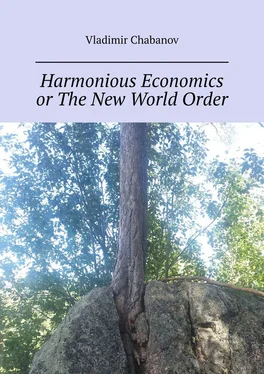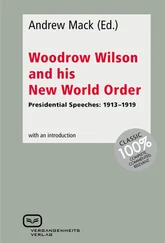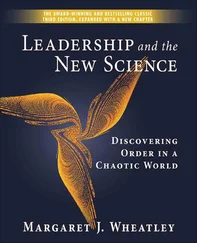Consequently, social protests increase, the feeling of discontent deepens, and terrorism gains ground. On the other hand, the number of millionaires grows. And it would be a violation of truth to believe that the more people get rich, the less poor there are. So why does this happen?
The existing economic theory is based on liberal principles that consider the free – that is, uncontrolled – actions of a certain group of persons as the paramount value of the social being. This freedom brings about the inviolability of private property, the freedom of business, and the precedence of the rights of a person over the rights of the society ( a person is more important than the state ). Besides, these principles exempt people of their obligations before others, and limit, as much as possible, the state and social interference in everyday and economic life of the country. This economics conforms to Thomas Carlyle’s formula “anarchy plus a street-constable’ 3 3 Cit. ex T. Carlyle, The Present Time (Cambridge University Press, 2013), 24.
, which the wellbeing of the state and the society do not fit.
Such economic philosophy in all its forms turned out to be most advanced and thoroughly tested, and has served as the ideological foundation of the modern economic science. That is why all tools,criteria and incentives of the existing structure have been adapted to serve the profitable economics and not the useful economics. For instance, its global indicators, such as GDP, national income, and GNP, are based on the monetary income and not the tangible social improvements. All of the above-mentioned factors have given rise to a global confrontation between the social nature of production and the private consumption of its results. Nevertheless, economics disregards this and continues along the selected path, just as a driver who would navigate by the stars failing to look at the road. It is obvious that in such conditions collapses are inevitable.
Due to these reasons, current economics is incomplete, self-contradictory, and unstable. Its notions cannot withstand reasonable criticism, they have lost touch with reality, and lack unifying logic and clear objective. These notions are obsolete. However, there is no solid structure, and for that matter no science, without a foundation.
Indeed, the chasm separating modern economic studies from economic practice is dispiriting. The way it is interpreted and taught, this subject has little in common with the real situation. As Ronald Coase, Nobel prize winner in economics in 1991, wrote: “ The tools used by economists to analyse business firms are too abstract and speculative… Since economics offers little in the way of practical insight, managers and entrepreneurs depend on their own business acumen, personal judgment, and rules of thumb in making decisions… Economics thus becomes a convenient instrument the state uses to manage the economy, rather than a tool the public turns to for understanding how the economy operates ’ 4 4 [ Translator’s note: Translated by me.]
. [1]
The tone of the modern economics is set by theoretical philosophizing on price formation principles, returns and expenses, interest rates and inflation, demand and offer, rent and preferences, which has supplanted discussion of the ways to increase labour productivity and improve labour organisation. Instead of striving to create conditions for dignified human existence and cultural development, this science is impregnated with acquisitiveness.
Thus, economics turns out to be a fruit of centuries-old delusions, passions and egotism, politics and momentary actions, and not a product of systemized knowledge. It is used to justify and to serve the existing political regime, not to improve it. That is why the crisis we observe today is easy to understand and explain. Besides, a large number of economists are familiar with it (ref., inter alia, [2] – [5]). For this reason, the method of analogies, i.e. the trial and error method, is used in decision-making, which with time renders it ever less reliable and ever more expensive. Another possibility is to recreate blindly the experience of others.
In order to avoid it, a solid fundamental theory is required that would be capable both of forecasting and guiding. It should serve as a compass to indicate the correct and the erroneous direction of development for every specific action. Unfortunately, in modern economics, such a tool does not exist and is not even foreseeable.
That is why the variety of economic doctrines is so wide – they seek to bring some order into this kingdom of chaos. Here anything can be found: from monetarism to Keynesianism and mercantilism, from planned economy to utter anarchy, from conservatism to naïve romanticism. And while mercantilism encourages to save money, physiocracy urges to actively spend it. While metallism considers money an indicator of the nation’s wealth, nominalism regards it as conventional sign. The list of comparisons can be continued.
Thus, the current economic theories do not make up a whole, but are just fragments of science. They are not united by one principle, logic, or managing tools. That is, they resemble the branches of a business entity tree not connected to any single trunk or root. Consequently, the advice based on such studies is not universal. Economy is a complex structure that cannot be simply assembled out of separate fragments, like a puzzle.
It is obvious that economics can turn into a real science only provided that it abides by objective, universal laws and serves every human being instead of just the few. Then the entire arsenal of the limited doctrines will become superfluous, and the only true doctrine based on the laws of the World will survive. Indeed, the man is not a special supranatural creature guided by its personal cravings, but a natural phenomenon carrying out the functions it has been charged with. As the result, if the man tries acting as he wishes, in disregard of the laws of the World he lives in, then the World turns its back on him, and all the powers of Nature take up arms against him. We witness this confrontation on a regular basis. It increases the number of natural catastrophes, earthquakes and tsunamis, anthropogenic accidents, and emergencies. However, there should be no surprise here, as everything in the world is interconnected.
On the other hand, the current economic doctrines, highly controversial as they might be, all have one thing in common: money, as their only tool of analysis and management. This is no coincidence. In full accordance with the liberal doctrine, current economics takes monetary income, and not the actual benefit, as its basic tool. That is why current economics has turned money into its global objective, has made it the main means and source of human wellbeing, their dream and guiding star. The fact that money is more profitable to produce than goods contributes to this situation.
Thus, the existing economy is conditioned by money, and nothing goes by without it. Money generates money, it serves as the yardstick, as a fundamental incentive, and the criterion of perfection for any company or economic transaction. Money subordinates people, nature, and power. It is profit, investment, shares quotations, and interest rates that control production, instead of such factors as production efficiency, possible success, and usefulness. As the result, the objectives of capital owners dominate those of useful items producers. Obviously, this does not contribute to increasing the productivity of economy.
Consequently, the “long money’ has disappeared, and financing is granted only to those projects that bring the fastest profit, and not the biggest benefit. Economics is now guided by short-term activity, thus losing its global objective and ultimate goal. Once money has acquired its unnatural overwhelming importance, it started actively submitting the world to its power. It is the money that causes and directs modern destructive tendencies.
Читать дальше












